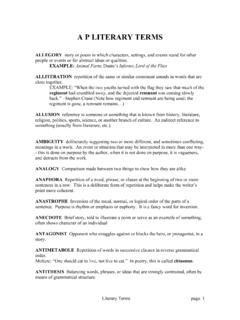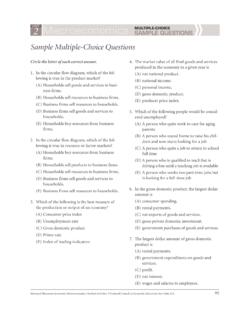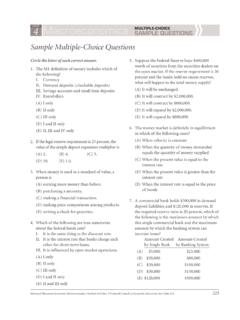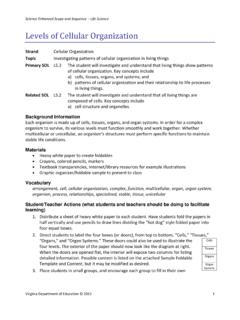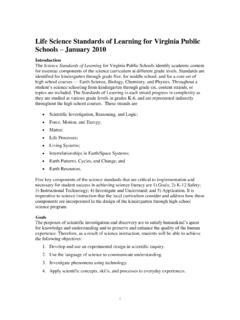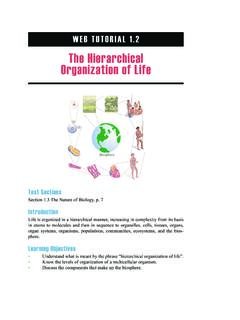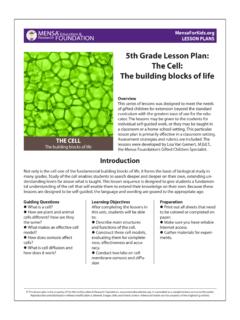Transcription of Levels of Organization - Houston Independent …
1 Levels of OrganizationSecondary Science Curriculum -yseSecondary Science Curriculum -yseBody BuildingHow are living things organized? An organismis a living thing that can carry out life processes by itself. Unicellular organisms are made up of just one cell that performs all the functions necessary for life. Unicellular organisms do not have Levels of Science Curriculum -yseHow are living things organized? Unicellular organisms need fewer resources and some can live in harsh conditions. They are very small and are easily eaten by other organisms. If the single cell dies, the entire organism Science Curriculum -yseHow are living things organized? Multicellular organismshave multiple cells that are grouped into different Levels of Organization . Multicellular organisms are larger, more efficient, and have a longer lifespan than unicellular organisms. Multicellular organisms need more resources than unicellular organisms. The cells are specialized and must depend on each other for survival of the Science Curriculum -yseHow are living things organized?
2 A tissueis a group of similar cells that perform a common function. Humans and other animals are made up of nervous, epithelial, connective, and muscle tissues. Plants have transport, protective, and ground Science Curriculum -yseHow are living things organized? An organis a structure made up of a collection of tissues that carries out a specialized function. Different tissues can work together to accomplish a function, such as digesting food. Plants have organs such as leaves, stems, and Science Curriculum -yseHow are living things organized? An organ systemis a group of organs that work together to perform body functions. Each organ system in the body has a specific job to do for the Science Curriculum -yseHow are living things organized? What are the Levels of Organization in this tree?Secondary Science Curriculum -yseWhat tasks do systems perform to meet the needs of cells? A unicellular organism must perform all functions necessary for life.
3 A multicellular organism has specialized cells, tissues, organs, and organ systems that perform specific functions. Some plants have a vascular system that transports water and nutrients to and from cells throughout the plant.
